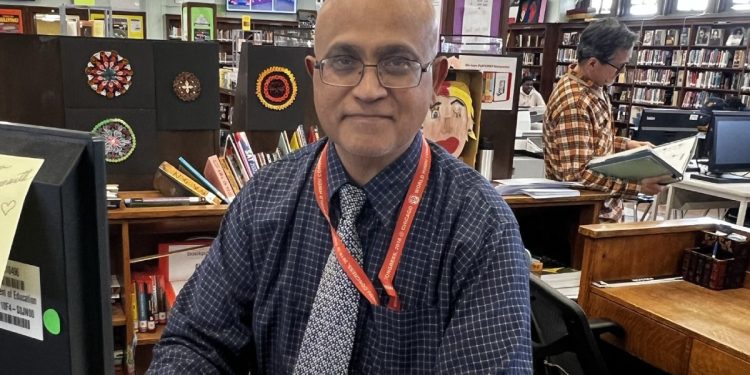The latest opinion survey conducted by this writer for NACTA on political popularity in Guyana in January showed a significant percentage of voters are not pleased with the available options and appealing for entrance of new parties in elections due by November. The names of philanthropists Glenn Lall and Azruddin Mohamed were mentioned especially among the lower class. The poll found the ruling PPP in the lead for the next general elections due by November. The poll also put President Irfaan Ali as being far more favorable as President than PNC leader Aubrey Norton and AFC leader Nigel Hughes. However, Hughes has a higher favorability rating than Norton.
The PPP, at its weakest since returning to office in August 2020 and saddled with several financial scandals, has managed to remain more popular than the opposition (PNC or APNU) and its coalition partner (AFC) because they have not been unable to present itself (themselves) in a more positive light than the PPP, and it (they) has (have) failed to show itself (themselves) as viable alternative to the incumbent. The PPP has made gains among all groups — Africans, Amerindians, and Venezuelans — except Indians, many of who complained about religious discrimination. The PNC, under Norton, has been losing ground among all groups. He has zero cross over racial support from Indians. The poll also found voter interest in the election has been waning, impacting both the PPP and PNC with the latter being more affected than the former.
This writer has been conducting surveys (polls) for NACTA going back to the early 1990s. No surprises have been found in recent surveys. The latest tracking poll has the PNC (led by Aubrey Norton) trailing the PPP by more than 10% as voters reject Norton and in favor of Irfaan Ali as President. A significant number of Africans gravitate towards Ali.
The PNC is found to be slightly ahead of the AFC, but together, their support has a fighting chance against the PPP. The two parties together could put up a strong challenge to the PPP. Neither opposition party, PNC or AFC on their own or together, can defeat the PPP. And on their own, the mini parties do not pose any threat to the three main parties; the mini parties are struggling with the support falling short of a seat under the joinder list system. But a new party led by a sharp, well-informed, charismatic leader could pull off an upset at general elections due by November. Azruddin Mohamed and Glenn Lall are attracting significant following, but it is too early to tell whether that can translate into votes. Many voters did say they will vote for Azruddin and or Glenn; that could produce a shock outcome as many voters said they are fed up of the dominant parties. Political momentum is shifting towards Glenn and Azruddin. But neither civic figure has announced any intention to run for office. If they do run, together or separately, they could win seats to hold the balance of power. A significant number of voters, disenchanted with Norton’s leadership as well as with the PPP, and expressing remarks of political fatigue, said they will not vote. But they said they will be likely to cast ballots if Azruddin, Glenn, and other new credible figures contest the elections; none has come forward. If they do, the PPP could see them taking some of that party’s dissatisfied support.
Besides NACTA, other polls were or are also being conducted. As this pollster found out from interviewers in the fields, Barbadian pollster Peter Wickham did a survey for an interest group last year. An American firm also did a poll to test for voter support for an American interest entity. Polls were also conducted by a political party (could be PPP as PNC lacks funding) that has employed two foreign firms, using findings to plan election campaign. None of the four polls have (known) coordinators in Guyana as demanded to be revealed by a critic of NACTA’s polls. Knowing coordinators will not change results of surveys; all pollsters know this fact. All polls conducted around the same time produce the same findings. Thus, the NACTA findings would not vary from those of the other polls – all of which would have put the PPP in the lead but well short of the 50% mark.
The latest NACTA poll conducted by this writer in mid-January has a margin of error of plus or minus four per cent when the data is analyzed at the 95 per cent confidence level, a standard operating procedure of polling. Similar tracking polls conducted last November, September, August, and earlier in 2024 also found the PPP ahead of the PNC (APNU) and any coalition.
The poll results clearly indicated that the writing is on the wall for Norton’s leadership and the PNC and other opposition parties, opening up opportunities for new parties. Should Azruddin and Glenn Lall form new parties, they would do extremely well.



































































